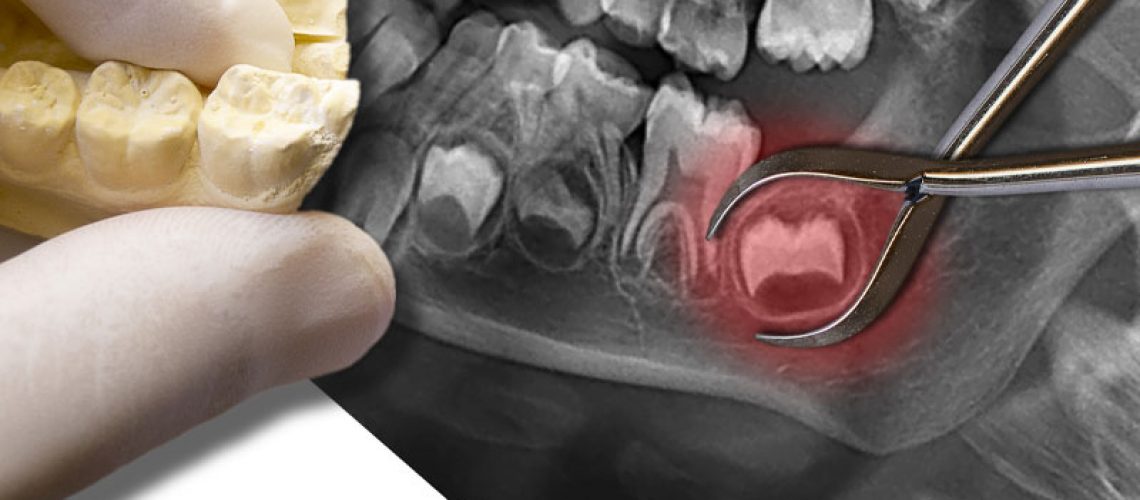Have you been experiencing swelling, pain, discomfort, or irritation around your gums or teeth? If these symptoms are present specifically around your wisdom teeth, they may need to be removed, and could be a sign of infection. Wisdom teeth are often the last teeth to erupt, typically during the teenage years, and rarely have enough room to grow in properly. Due to this and the upward curvature of the jawbone, they often grow sideways—pushing against healthy teeth—and sometimes failing to erupt fully through the gums. This leads to swelling, infection, pain, misalignment, and sometimes cysts and tumors. Ultimately, these late-erupting teeth can cause a great deal of difficulty and yet you don’t need them to eat or speak normally. Here are three reasons why wisdom teeth removal is beneficial:
- Wisdom teeth can cause decay and infection. Wisdom teeth that have partially erupted through the gums can easily trap bacteria. If normal brushing and flossing can’t reach these areas, the teeth are at risk for decay and gum disease. In both instances, infection can cause damage to other healthy teeth, gums, and bone.
- Wisdom teeth can harm other teeth. Wisdom teeth that grow sideways can move directly into molars. This not only damages the roots of these molars but can cause crowding that reverses costly orthodontic treatment. These crowded teeth become more susceptible to plaque and tartar buildup that leads to decay and infection.
- Wisdom teeth can be painful. Impacted wisdom teeth sometimes aren’t uncomfortable, but they often cause chronic pain that may also affect comfortable jaw movement, too. Sometimes, wisdom teeth can also lead to painful cysts or swollen gums that can lead to discomfort.
The Wisdom Teeth Extraction Procedure
When completed by an experienced oral surgeon, wisdom teeth removal is efficient and comfortable. The patient will first be given sedation or anesthesia to ensure a relaxing and pain-free surgery. Then, using special tools and techniques, the oral surgeon will gently remove a portion of bone to gain access to the teeth. Next, the wisdom teeth are cut into smaller sizes and removed from the area. Once the site is cleaned, the gum tissues are sutured in place. Patients need a few days to recover after surgery, but a full recovery is generally expected after a few weeks.
Schedule Your Consultation
Even if wisdom teeth aren’t causing problems, scheduling a consultation and x-ray for your teen is a good idea to ensure no damage or decay is present. Contact our oral surgeon, William F. Lane, D.M.D. and William M. Lane MD, DMD, MBA, in our office in Plymouth, MA today!



